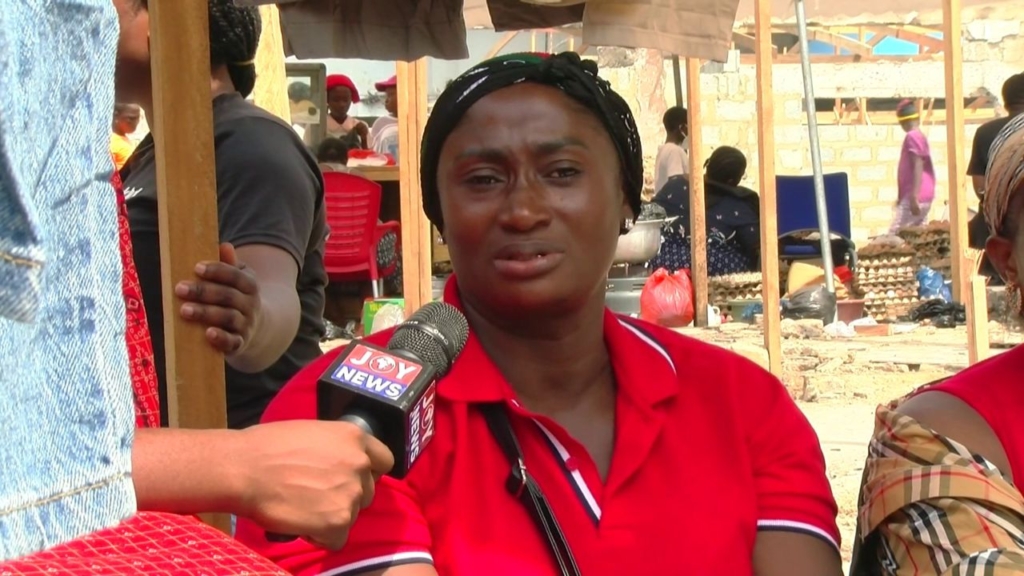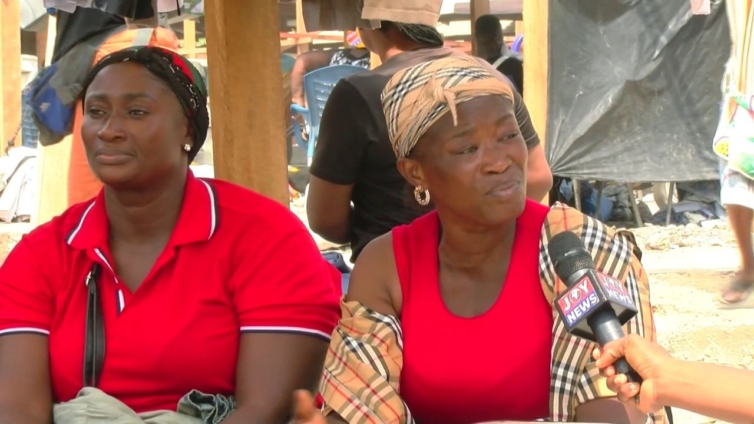Ghana recorded 4,650 fire incidents between January and September 2024, raising serious concerns about public safety.
The recurrent market fires have affected countless individuals, leaving them grappling not only with the loss of their livelihoods but also enduring profound psychological impacts.
On January 2, 2025, another fire at Kantamanto Market in Accra destroyed properties and livelihoods, adding to the growing list of fires ravaging major markets nationwide. Beyond the statistics and destruction lie deeply emotional stories of resilience and despair.
Barbara, a victim of the Kantamanto fire, shared her harrowing experience:
“When I saw the fire ravaging everything I owned, it felt as though my world was coming to an end. I had to be doused with water just to gather enough strength to stand again. I know it is only by God’s grace that I’m still here today. Every morning, I come back to this place because I have three children depending on me. Despite the devastation, I press on, knowing they rely on me for everything."

She added, "As a single parent, I work tirelessly every day just so my children can have a meal. But with this fire, I feel a deep sense of fear. The loss has been unbearable. Each day, I find myself wandering aimlessly, not knowing where to turn next. Every dawn is a reminder that I have nowhere to go, and the burden feels heavier each day."
Experiencing a fire, especially with the loss of one’s livelihood, can have a significant impact on mental health. Recovery is a long and challenging journey for those who lose everything.
Dr. Abigail Naa Ayeley Harding, a psychiatrist at Korle-Bu Teaching Hospital, highlighted the psychological toll of Ghana’s market fires.

“In the early stages, it's common to feel overwhelming anxiety, constant worry, and a persistent sense of being troubled. Sleep disturbances, including restless nights. Many people feel a profound sense of hopelessness, struggling to see a way forward in the wake of their loss,” she explained.
Mental health professionals warn that the psychological effects of traumatic events often linger long after the crisis ends, underscoring the importance of seeking support.
Dr. Harding recommends leaning on loved ones, whether family or close friends, and seeking professional help from mental health specialists to gain valuable tools and coping strategies for managing the emotional aftermath.
The road to recovery is undoubtedly long and difficult, but with time, support, and professional guidance, survivors can begin to heal.
Latest Stories
-
Parliament to draft bill to back lifestyle audit – Alban Bagbin
6 minutes -
North Tongu DCE leads reforestation campaign at Tagadzi Methodist Basic School
7 minutes -
GMA Volta chair urges young doctors to embrace rural service with purpose
9 minutes -
Let’s support PHDC to deliver ‘critical’ Petroleum Hub Project – Bagbin
16 minutes -
Minority declares nationwide campaign against energy sector levy
19 minutes -
Dr Wuaku urges bold private sector investment to transform healthcare in Volta and Oti
23 minutes -
Bagbin endorses Petroleum Hub project as key instrument for development
30 minutes -
Devtraco Plus introduces ARLO, a smarter, more flexible way to invest and live in Accra real estate
33 minutes -
Unlocking Ghana’s BPO Goldmine: A call to action
35 minutes -
Striking nurses meet Health Ministry to end ongoing strike
43 minutes -
Apartments vs Houses: What’s best for living and investing?
44 minutes -
Rotary Club of Kumasi donates equipment to aid maternal and childcare at St. Michaels Hospital at Pramso
51 minutes -
GMA to launch National Doctors’ Day awards to honour Ghana’s medical heroes
54 minutes -
Cowbell celebrates World Milk Day at 37 Military Hospital and Basic School
1 hour -
Striking nurses ready for dialogue but firm on demands
1 hour

